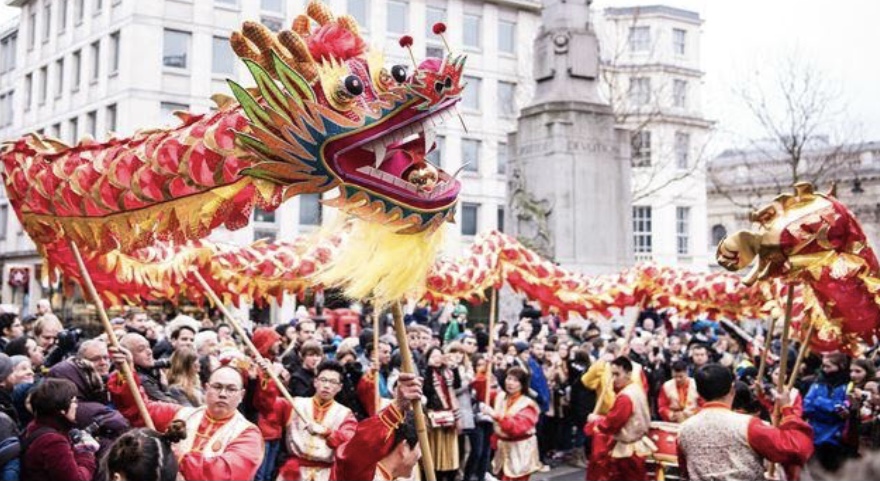A COVID-19 Chinese New Year
Millions of people won’t go home this year for the Chinese New Year because of the virus
Photo courtesy of visitlondon.com
COVID-19 once again limits our activities, so celebrations of the Chinese New Year like this will be rare.
February 17, 2021
The pandemic, an unstoppable force of change, has made a great impact on our holidays. From no Thanksgiving dinner to no Christmas parties with friends, the pandemic is now going to alter the very foundation of celebrating Chinese New Year.
The Chinese New Year is based on the lunar calendar instead of the solar calendar, and thus changes between years. This year, the date of the holiday, Feb. 12, is the same day as Abraham Lincoln’s birthday, in contrast to last year’s Jan. 15.
The main difference in Chinese New Year celebrations this year is the gatherings.
“There won’t be big gatherings, obviously. So no friends or family can come over. Because Chinese New Year is still about family, we’re probably just going to facetime our grandparents instead of meeting them,” junior Albert Zeng said.
A lot of families have relatives who work overseas, but they usually come visit their family in the US. However, the Chinese government has urged workers in China not to go home this year. Even if the reported amount of COVID-19 cases in China is not as high as it is in the US, the new Sars CoV-2 variants spreading around the world are still incredibly infectious.
Many traditions, involving decorating and eating, will remain the same, even if the methods of celebration have changed. Families will still make traditional foods, like bean cakes and spring rolls. Decorations could include red paper window decorations or paper lanterns.
“We’ll still eat dumplings or other traditional food, maybe watch a movie, and relax,” Zeng said.
Ultimately, Chinese New Year is about unity and family, so even without physically being together, families can still talk over facetime and celebrate together, in a manner of speaking.
“To be quite honest, celebrating Chinese New Year for me has always been at home,” freshman Brian Zhou said. “This year, I think it’ll be the same, except with more time at home.”


![Students were invited to eat Chinese food in order to celebrate the Lunar New Year. “[My favorite part] was probably the food” junior Erin Li said.](https://www.tjtoday.org/wp-content/uploads/2020/02/Screen-Shot-2020-02-09-at-6.22.14-PM-300x199.png)






![A group of juniors play “Clash Royale” on their phones during lunch. Lunch is the only time when phones are allowed to be out. “I think once we adapt to it, it's not going to be something we miss because [for] everyone moving forward, that'll have been the policy [since] middle school,” DNA science and biology teacher Aubrie Holman said.](https://www.tjtoday.org/wp-content/uploads/2025/09/IMG_6621-2-e1758016994220-300x239.jpeg)